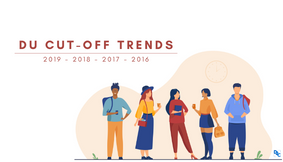Will Uber and Ola survive COVID-19? A closer look at ride-sharing services in light of the pandemic

Ride-sharing services have revolutionised the way we commute. Getting from A to B within the city became a one-click affair. Soon followed the option of getting from A to B when A and B were in different cities! This convenience, increasing fuel prices, overflowing parking lots and the millennial attitude of not owning assets, have all lead to an unprecedented boom in the ride-sharing space.
Startups like Ola and Uber paved the way for smaller ride-sharing services to experiment with carpooling, plying vehicles on set routes through the cities to corporate hubs such as Noida and Gurgaon. These services have not only redefined public transport for the jet-setter millennial but have also acted as the catalyst for the inception of innovative service providers in the space. Ola and Uber had captured their market and were the go-to app for many young office goers.
Uber has, since its inception diversified its offerings, is operational in 65 countries worldwide. With its fleet of cabs plying in over 600 cities Uber has been labelled the 2nd most disruptive company in the world by CNBC in the year 2018. The Uber odometer has recorded over 10 billion trips worldwide. All of these are a clear indication of a few things:
- Ride-sharing business model is here to stay
- Uber had cracked the right formula
- This space is bound to see many innovations in the future
The prospects of growth at breakneck speed was a given when the world was on the move. When people wanted to get to point B from A. B could have been an office, a friend's place, a college or even the mall where one would just hang out. With the pandemic still lurking on the streets, the need to get to point B has reduced. Offices have moved into each of our homes, school and colleges have gone virtual. And the need to socialise is best curbed if one wants to stay safe. With such a drastic shift in things let's try to understand the challenges being faced by cab sharing services currently and the future of the industry in detail.
Challenges for the Industry
Considering the present circumstances where social distancing has become the key, ride-sharing services have completely lost its customers. As the world is facing a pandemic, the work has either shifted to work from home or people who have to go to the offices are using their personal transport rather than public transport to travel. The fear of cleanliness and lack of hygiene across public transports has caused this major shift in consumer behaviour. This has lead to major revenue losses for companies like Uber and Ola in India. Due to the reduction in demand, the partner cab drivers are left with no source of income. There have been reports of Ola and Uber laying off people due to reduced revenues.
On the other hand, Shuttl presently has been facing some tough challenges as all the work has been shifted to work from home. Since there are hardly any people going to offices, the buses which had a capacity of at least 50 people are running empty. This has affected the revenues of the company.
Carpooling has completely come to a standstill thereby forcing the companies to take steps to win back their customer base and work towards converting the losses into profits.
Winning back customers
In order to manage the demand, both Ola and Uber are taking some major steps. The companies have realized how crucial the element of hygiene has become for people. Uber has been working towards keeping its car clean by distributing sanitizers and other disinfectants to its drivers. In addition to this, all contact surfaces are also being disinfected. Even the fares have been reduced by Uber to increase bookings. As far as the partner drivers' discomfort is concerned, Uber has started an app called 'Work Hub' through which they can find alternate jobs.
When the lockdown guidelines were changed by the government, Uber started its cab-hailing services again but after making certain changes. Now the driver-partners have to complete a checklist of precautions on the app and even put up their photo in a mask on the portal. The same rules have to be followed by customers too. Only when the checklist is completed, a cab will be booked. In addition to this, Uber has also given its driver-partners an option to cancel the ride if they feel the place isn't safe or the customer is not following the rules. To ensure the safety of the passengers, Uber has issued instructions wherein no passenger is allowed to sit in the front seat and at a time only two passengers are allowed to sit in the cab. Uber even tied up with Spencer's, Flipkart, and Big Basket to deliver the essentials to the people.
Ola has also been active in changing its strategies. They have temporarily stopped its ride-sharing service, Ola Share. They are offering sanitizers and disinfectants to its drivers free of cost and has even reduced the fares to encourage more and more people to use its services. Ola even started Ola Emergency in partnership with the Ministry of Health in Karnataka through which passengers can now book cabs to visit hospitals. Since ambulances are all at work, Ola has come to the rescue and it will be transporting people having any ailment of non-ambulatory nature to the hospital at minimum charges.
Way Forward
The pandemic sure has stunted the growth of cab sharing services. Since pandemic has increased the use of online payment portals and E-wallets, this is going to prove beneficial for this industry. Also, various product developments are being thought of by the companies in order to diversify their portfolio. Finally, with increased awareness about carbon dioxide emissions, climate change, and electric vehicles, ride-sharing services are expected to become a necessity for the people.
COVID-19 has impacted every industry but it has even provided numerous opportunities to the industries. It is important for companies to identify these opportunities and use them for their benefit.
Login to continue reading
And access exclusive content, personalized recommendations, and career-boosting opportunities.














Comments
Add comment